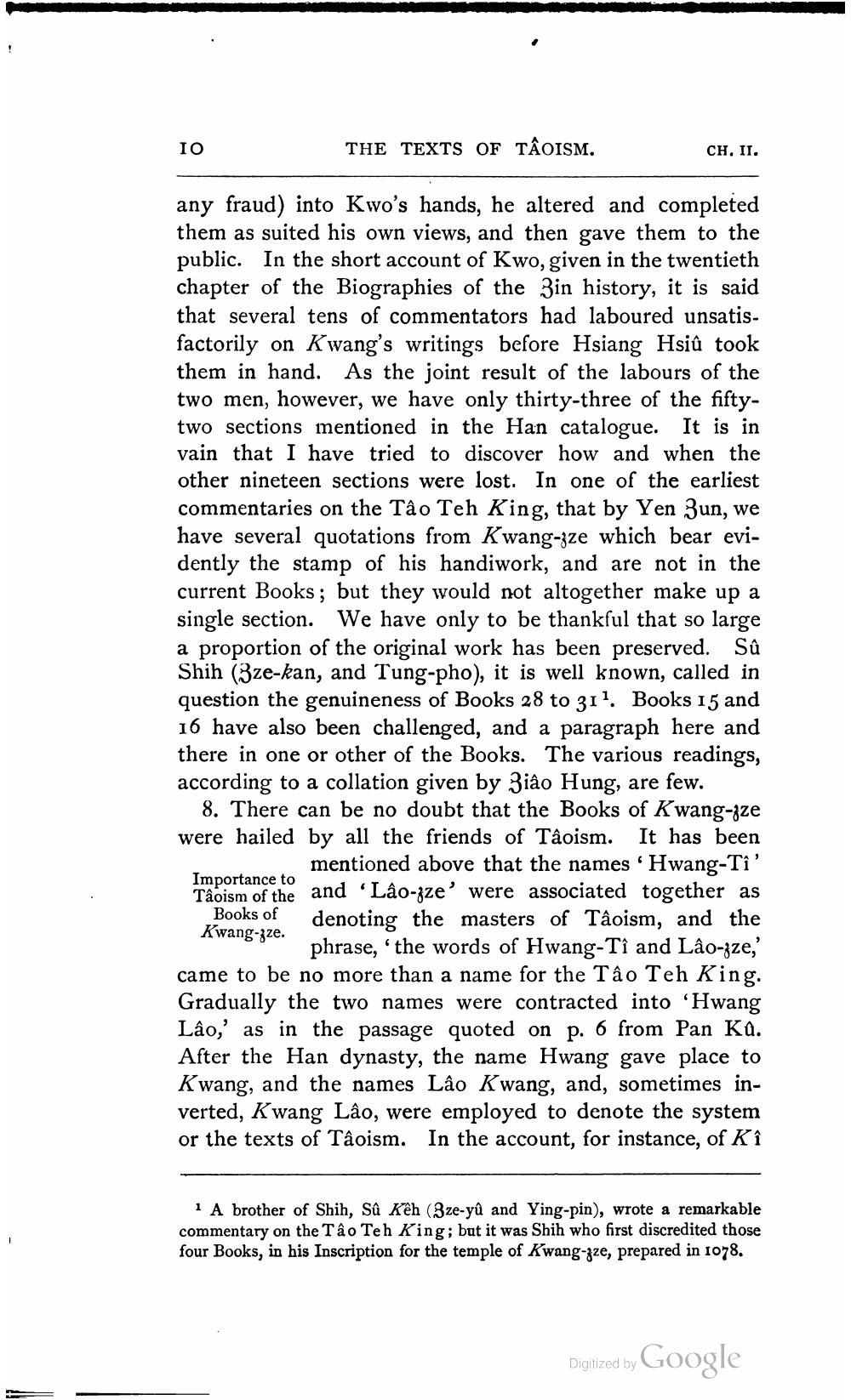________________
IO
THE TEXTS OF TÂOISM.
CH. II.
any fraud) into Kwo's hands, he altered and completed them as suited his own views, and then gave them to the public. In the short account of Kwo, given in the twentieth chapter of the Biographies of the Zin history, it is said that several tens of commentators had laboured unsatisfactorily on Kwang's writings before Hsiang Hsiû took them in hand. As the joint result of the labours of the two men, however, we have only thirty-three of the fiftytwo sections mentioned in the Han catalogue. It is in vain that I have tried to discover how and when the other nineteen sections were lost. In one of the earliest commentaries on the Tâo Teh King, that by Yen Zun, we have several quotations from Kwang-zze which bear evidently the stamp of his handiwork, and are not in the current Books; but they would not altogether make up a single section. We have only to be thankful that so large a proportion of the original work has been preserved. Sû Shih (Zze-kan, and Tung-pho), it is well known, called in question the genuineness of Books 28 to 311. Books 15 and 16 have also been challenged, and a paragraph here and there in one or other of the Books. The various readings, according to a collation given by Ziâo Hung, are few.
8. There can be no doubt that the Books of Kwang-gze were hailed by all the friends of Taoism. It has been
mentioned above that the names 'Hwang-Tî' Importance to Taoism of the and 'Lâo-zze' were associated together as
Books of denoting the masters of Tâoism, and the Kwang-zze.
sea phrase, the words of Hwang-Tî and Lâo-zze,' came to be no more than a name for the Tâo Teh King. Gradually the two names were contracted into 'Hwang Lâo,' as in the passage quoted on p. 6 from Pan Ku. After the Han dynasty, the name Hwang gave place to Kwang, and the names Lâo Kwang, and, sometimes inverted, Kwang Lâo, were employed to denote the system or the texts of Taoism. In the account, for instance, of Kî
* A brother of Shih, Sû Kêh (3ze-yû and Ying-pin), wrote a remarkable commentary on the Tâo Teh King; but it was Shih who first discredited those four Books, in his Inscription for the temple of Kwang-zze, prepared in 1078.
Digitized by Google




